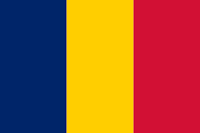 So, 31 August and we have Independence day in Kyrgyzstan—you know the one. Landlocked, surrounded by Kazakhstan, Uzbekistan, Tajikistan and China. Descended from nomadic tribes, tucked in the middle of ex-SSRs, I feel like Kyrgyzstan gets forgotten by most of the world. I could not have told you yesterday that Bishkek is the capital, though I could have pointed to the country on a map.
So, 31 August and we have Independence day in Kyrgyzstan—you know the one. Landlocked, surrounded by Kazakhstan, Uzbekistan, Tajikistan and China. Descended from nomadic tribes, tucked in the middle of ex-SSRs, I feel like Kyrgyzstan gets forgotten by most of the world. I could not have told you yesterday that Bishkek is the capital, though I could have pointed to the country on a map. Historically the Kyrgyz people did pretty well for themselves in the first millennium or so of the common era, expanding their territory—but then the Mongols began to push them back into smaller spaces again.
Then came Russia—people who think of Kyrgyzstan at all most likely think of it in the same breath as Russia. The country was part of the Russian empire in the 19th century. In 1919 Soviet power was established, and in 1936 the country became the Kirghiz Soviet Socialist Republic. Obviously when the USSR broke apart, Kyrgyzstan was left to form an independent nation.
Because the populations around the area had been quite mobile before the establishment of firm borders, there is a Kyrgyz enclave in Uzbekistan, and a number of Uzbek enclaves in Kyrgyz. This has been the cause of ethnic tension at different points.
Oh, and the nomadic background of the Kyrgyz people continues as herding families still return to the high mountain pastures in summer.
 Interestingly, the Kyrgyz language has been through a few alphabetic changes—at first it was written with the Arabic alphabet. In the early twentieth century this was changed to the Latin alphabet until the impact of the USSR kicked in with the change to Cyrillic.
Interestingly, the Kyrgyz language has been through a few alphabetic changes—at first it was written with the Arabic alphabet. In the early twentieth century this was changed to the Latin alphabet until the impact of the USSR kicked in with the change to Cyrillic. Also, bride kidnapping still happens sometimes. As in, a man might tell his family he wants to marry, they pick out a girl and go kidnap her. It’s illegal though, and I don’t know how common it is. Still, when it does happen it’s rare that anyone does anything about it.
Today’s poem from Kyrgyzstan is by the Kyrgyz poet Suyunbay Eraliev, and comes from Language for a New Century.
Beginning
From the green meadows of Altai
I brought back a miraculous new wine
to the great summit of Tyan’-Shan’ya,
so that it might regenerate our self-esteem,
strengthen our people’s spirit
amid the devestation,
amid the battles,
amid our wanderings,
so that it might invigorate our spirit from year to year,
amid our legendary traditions.
In the firmament,
on the vaulted slopes
where flow the crystal waters,
in the villages so highly protected
by the endless stream of years gone by.
One could almost hear the strains of “Manas”
as time suddenly released the reins,
even the rain,
like the glance of an evil eye,
gave up its place to that weather.
—Suyunbay Eraliev
translated from the Russian by Yuri Vidov Karageorge
from Language for a New Century










.svg.png)




























